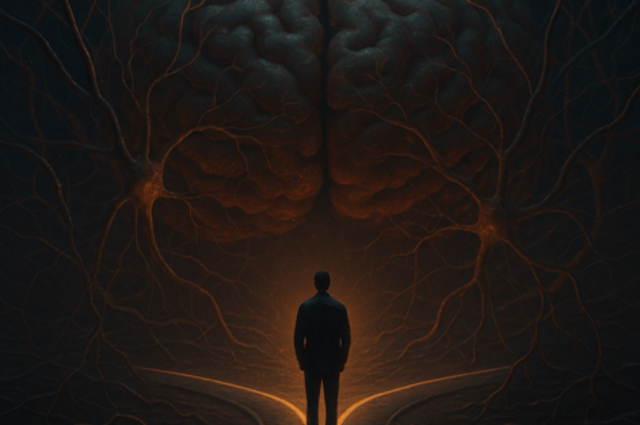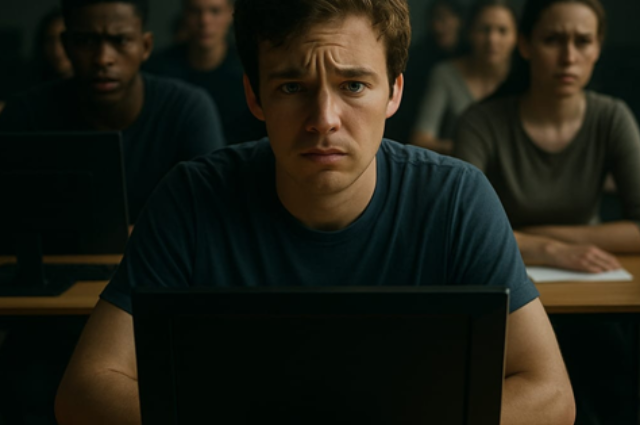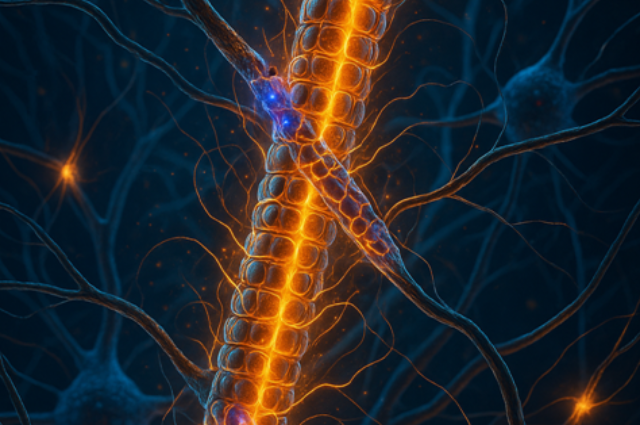
Introduction: The Illusion of Control
Every day, we make decisions believing we are in full control of our lives. From choosing what to eat for breakfast to making life-altering career moves, we operate under the assumption that our conscious mind is the ultimate decision-maker. But what if this sense of control is an illusion? What if our choices are merely the result of unconscious brain processes, and free will is nothing more than a comforting myth?
This essay delves into the intersection of personal failure, neuroscience, and quantum physics to unravel the enigma of free will. It begins with my own story of crushing disappointment, expands into the scientific experiments that challenge our notions of autonomy, and culminates in a revolutionary theory that might redefine what it means to "choose." Along the way, we’ll explore philosophical perspectives, psychological interventions, and the latest breakthroughs in quantum biology.
In a world obsessed with optimization and self-control, this topic isn't just academic. It affects how we judge failure, blame others, set goals, and even forgive ourselves. If our choices are driven by forces beneath awareness, what does that mean for guilt? For accountability? For personal growth? This isn't just philosophy—it's survival.
1. The Moment My Future Collapsed

The screen froze. The timer glitched. After two years of relentless preparation—countless hours of study, sleepless nights, and unwavering focus—my dream university entrance exam was crumbling before my eyes. I had envisioned this moment for years: the crisp exam paper, the quiet hum of concentration, the triumphant feeling of answering every question correctly. Instead, I was met with a frozen screen and a sinking realization that my efforts might be for nothing.
I slammed the desk in frustration, drawing a sharp glare from the proctor. Around me, my classmates continued working, their heads bent over their papers, unfazed. At that moment, I wasn’t just failing a test—I felt like I was losing control of my own life. The meticulous plans I had crafted, and the future I had envisioned, all seemed to slip through my fingers.
The weight of those years bore down on me in that one frozen second. I remembered the mornings I skipped sleep, the friends I ignored, the celebrations I postponed — all for this one shot. How could everything collapse because of one glitch? I stepped out of that room not just defeated but deconstructed. I wasn’t angry at the system. I was angry at myself for not having control over what mattered most.
This experience forced me to confront a terrifying question: How much of my life is truly under my control? The answer, as I would later discover, lies at the heart of a decades-old scientific debate about free will—one that challenges everything we think we know about choice, agency, and the human mind.
2. The 1983 Experiment That Shattered Free Will
In 1983, neuroscientist Benjamin Libet conducted a groundbreaking experiment that would forever change the way we think about free will. Participants were asked to perform a simple task, such as pressing a button, while their brain activity was monitored using electroencephalography (EEG). Libet discovered something astonishing: brain signals associated with the decision to act—termed "readiness potential"—appeared 350 milliseconds before the participants were consciously aware of making the choice (source).
This finding suggests that our brains make decisions before we’re even aware of them. In other words, by the time we consciously "decide" to act, our brain has already set the wheels in motion. As Libet famously concluded, "Your brain decides. You just rationalize it afterward."
The Implications of Libet’s Findings
Libet’s experiment sparked intense debate. If our decisions are made unconsciously, does this mean free will is an illusion? Some scientists argued that the 350-millisecond gap leaves room for conscious veto power—a last-minute "free won’t" where we can override our brain’s initial impulse. Others, however, saw this as evidence that our sense of agency is nothing more than a post-hoc narrative, a story we tell ourselves to make sense of actions that were already determined.
Others have since tried to replicate and critique Libet's findings. Some argued that the participants’ reports of “when” they made the decision were subjective and unreliable. Could pressing a button be equated to deciding to become a doctor, or to forgive someone? Yet the consistency of these unconscious signals appearing before conscious awareness cannot be ignored. Even if Libet’s model doesn’t fully dismiss free will, it complicates our understanding of it.
The Viktor Frankl Escape Clause
Amidst this debate, the words of Viktor Frankl, a Holocaust survivor and psychiatrist, offer a glimmer of hope. Frankl wrote, "Between stimulus and response, there is a space. In that space is our power to choose." His perspective suggests that while we may not control the initial impulses that arise in our minds, we can control how we respond to them.
Modern neuroscience supports this idea. Studies have shown that the prefrontal cortex—the brain’s executive center—can veto impulsive actions if it’s trained to do so. Cognitive Behavioral Therapy (CBT), for instance, demonstrates that while we can’t control the thoughts that arise, we can choose which ones to act on (source ).
Key Insight: Free will isn’t about generating choices from nothing—it’s about editing the options your unconscious brain serves you.
3. The 2024 Quantum Consciousness Breakthrough

Microtubules and Quantum Consciousness
Microtubules are tiny protein structures found within neurons. Recent research suggests they may exhibit quantum vibrations, playing a key role in the emergence of consciousness by generating and organizing thought possibilities at the quantum level. This theory, known as Orch OR (Orchestrated Objective Reduction), proposes that microtubules act as conduits for quantum computation within the brain.
In 2024, a revolutionary study published in Foundations explored the role of microtubules—tiny protein structures in neurons—in consciousness. The research suggested that microtubules might exhibit quantum behaviors, such as super-radiance, which could enable the brain to process information at an extraordinary level (source ).
(A summary of this research )
And it's not just theory anymore. 2024 also saw advancements in how anesthesia interacts with these quantum vibrations. One study found that anesthetic molecules impair π-resonance energy transfer in tubulin, directly linking microtubule disruptions to loss of consciousness. Other research even observed entangled photon pairs in myelin sheaths — suggesting the brain may process quantum information at scales far greater than previously imagined.
What This Means for Free Will
1. Quantum Probabilities: Microtubules may vibrate at quantum frequencies, creating a "probability field" of potential thoughts.
2. Conscious Selection: Your awareness "tunes in" to one of these possibilities, much like a radio selecting a station.
3. Orch OR Theory: This aligns with the Orchestrated Objective Reduction (Orch OR) theory, which posits that consciousness arises from quantum computations in microtubules (source ).
"We’re not authors of our fate—we’re editors in a quantum library of possibilities."
4. The Destiny Paradox: Why Do Random Failures Happen?
If we possess free will, why do seemingly random failures occur? Consider:
India’s 2023 Cricket World Cup Loss: Despite dominating the tournament, they fell short.
SpaceX’s Exploding Rockets: Elon Musk’s flawless calculations couldn’t prevent accidents.
J.K. Rowling’s Rejections: Harry Potter was turned down 12 times before success.
Science’s Answer:
1. Chaos Theory: Small, unpredictable events (like a butterfly’s wings) can alter outcomes (source ).
2. Stoic Philosophy: Focus on what you can control; accept what you can’t.
3. Bhagavad Gita (2.47): "You own your effort, not the results."
The Chalk Analogy :
Imagine throwing a piece of chalk at a friend across the room. You choose to throw it — but whether it hits depends on countless things: their reaction, someone shouting ‘Duck!’, even a gust of wind from a fan. Your intent was clear, but the outcome wasn’t yours to command.
Even in my own life, I’ve seen randomness shape more than failure. A chance meeting sparked one of my most important friendships. A YouTube video I watched out of boredom led me to quantum theory. The chalk analogy isn’t just about exams — it’s about life. You throw your best effort, but whether it lands often depends on variables invisible to you.
"Control isn’t about outcomes—it’s about how you respond when the chalk misses."
5. How to Hack the System: 3 Quantum Rules
1. Prepare Like a Machine: Study, train, and work relentlessly (generate options).
Michael Jordan once said, "I’ve failed over and over again in my life. And that is why I succeed." The ability to repeat effort — regardless of outcome — turns chaos into a pattern. That’s how you build choice.
2. Surrender Like a Monk: Accept that outcomes are chaotic (let go).
Think of Marcus Aurelius, emperor of Rome, journaling nightly on letting go. Or of Lord Krishna’s advice to Arjuna — fight without attachment. To act with detachment is to rise above the noise.
3. Choose Like a CEO: Use your prefrontal cortex to veto impulses (that’s real power).
In one of my darkest moments, I caught myself spiraling. But instead of giving in, I paused. That pause was everything. It didn’t fix my life — but it proved I could still steer.
This approach mirrors Acceptance & Commitment Therapy (ACT): Don’t fight reality—align with your values.
6. The Viral Truth Nobody Tells You
Life is 99% quantum noise—random, unpredictable events. The remaining 1% is your consciousness choosing which noise to amplify. That 1% is the difference between:
Reacting Like a Primate (amygdala hijack)
Responding Like a Visionary (prefrontal pause)
What changed for me wasn’t the outcome of that exam. It was realizing that I still had some power — not over the system, or luck, or fate — but over how I responded. That 1% of conscious clarity? It might be small, but it’s sacred. It’s where all transformation begins.
"Maybe I failed the exam—but I passed the test the universe was giving me."
7. Where This Research Is Already Changing Lives
This conversation isn’t just theoretical — it’s reshaping real-world systems.
In therapy, mindfulness-based CBT and Acceptance & Commitment Therapy use these findings to teach people how to “zoom out” from impulsive thoughts and realign with their values.
In law, neuroscience has led to a deeper analysis of criminal responsibility, especially in cases involving impulse-control disorders.
In AI, engineers are now exploring whether machines can simulate “choice” using quantum-like decision trees.
In short: the science of free will is already guiding how we heal, judge, and design.
Conclusion: Do You Believe in Free Will?
The science is clear: free will is not the all-powerful force we imagine. Yet, it’s not absent either. We are editors of our destiny, not authors. The universe presents us with chaos, but within that chaos lies a sliver of choice—the power to select, refine, and persist.
So, do you believe in free will? Or is life just chaos with a VIP menu of choices? The answer, like consciousness itself, may lie somewhere in between.
Drop your thoughts below—let’s break the algorithm together. 🔥
